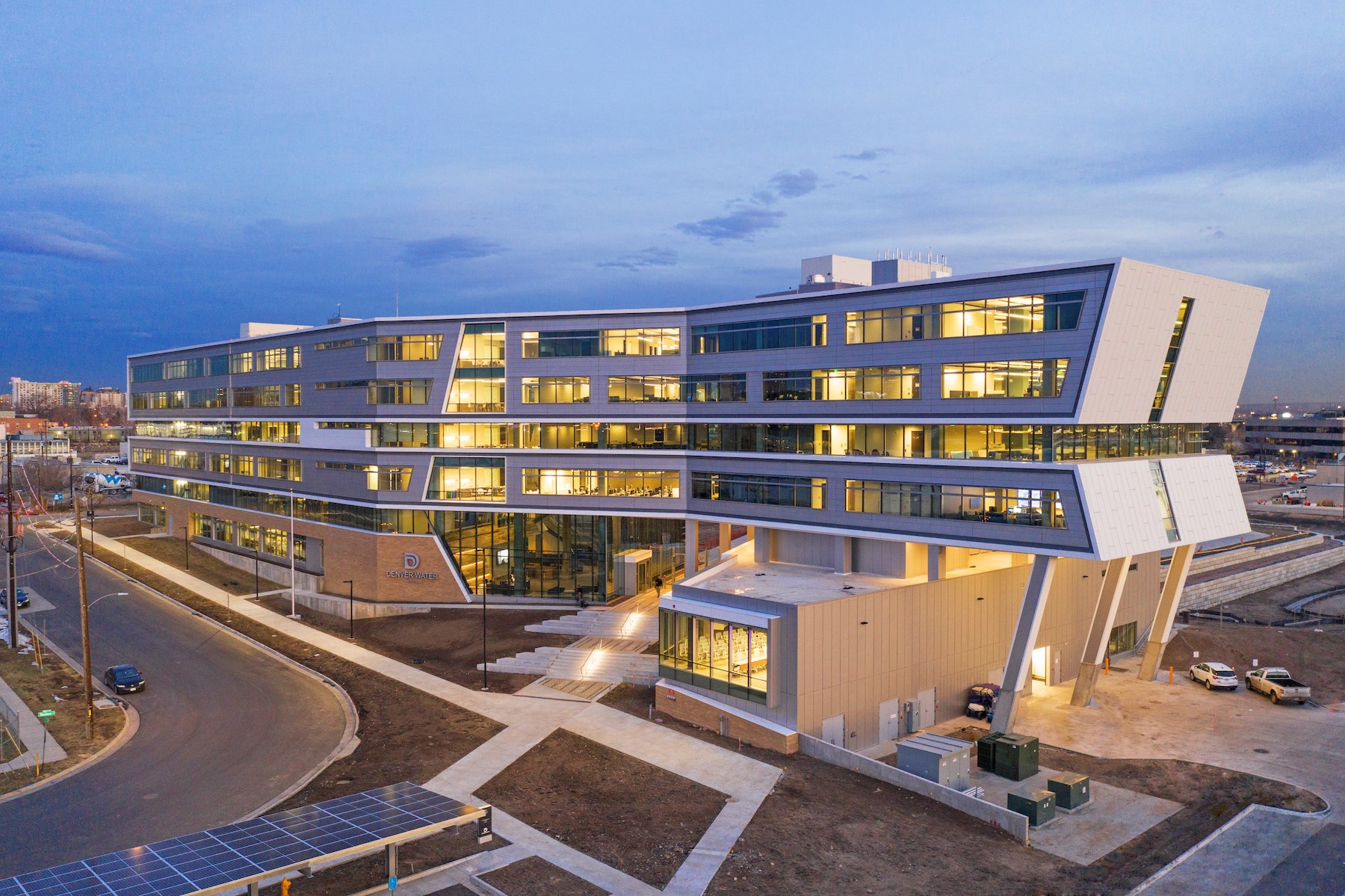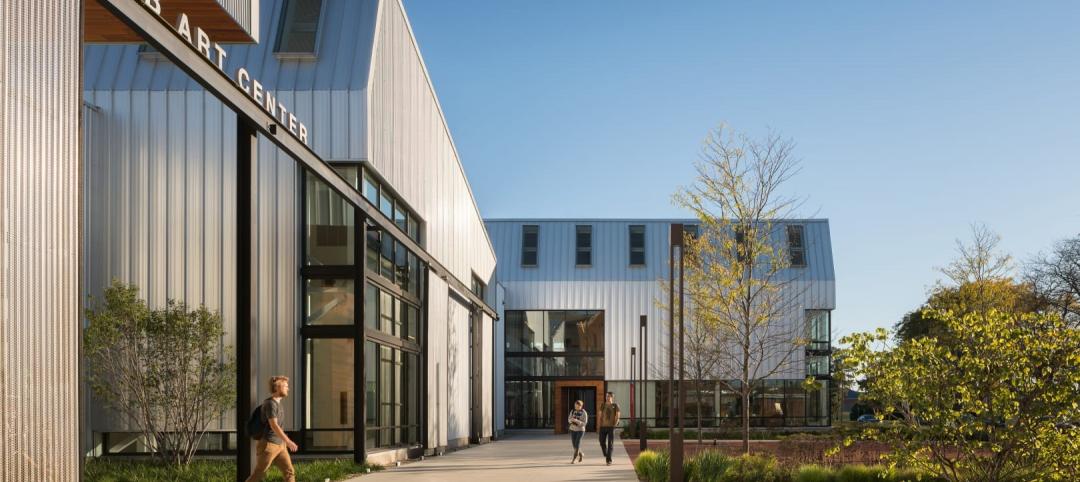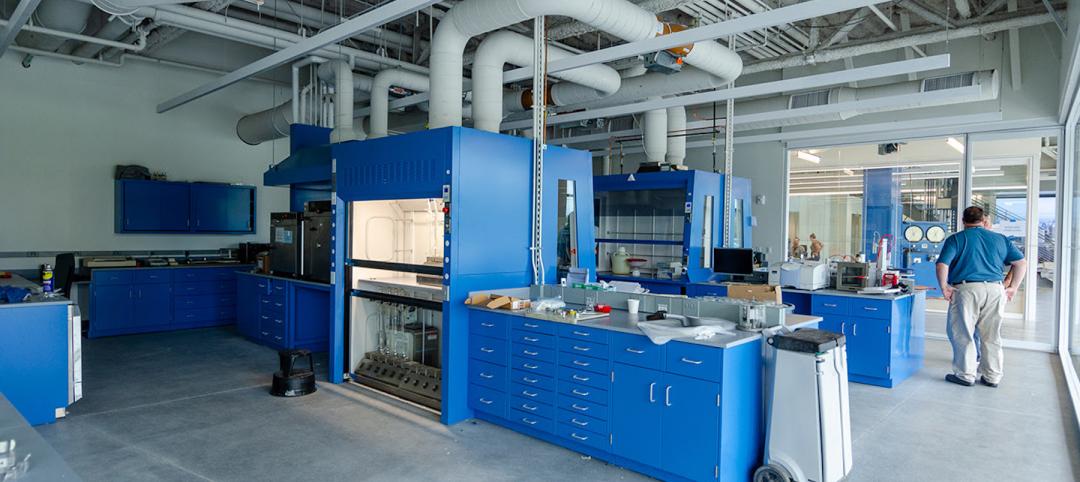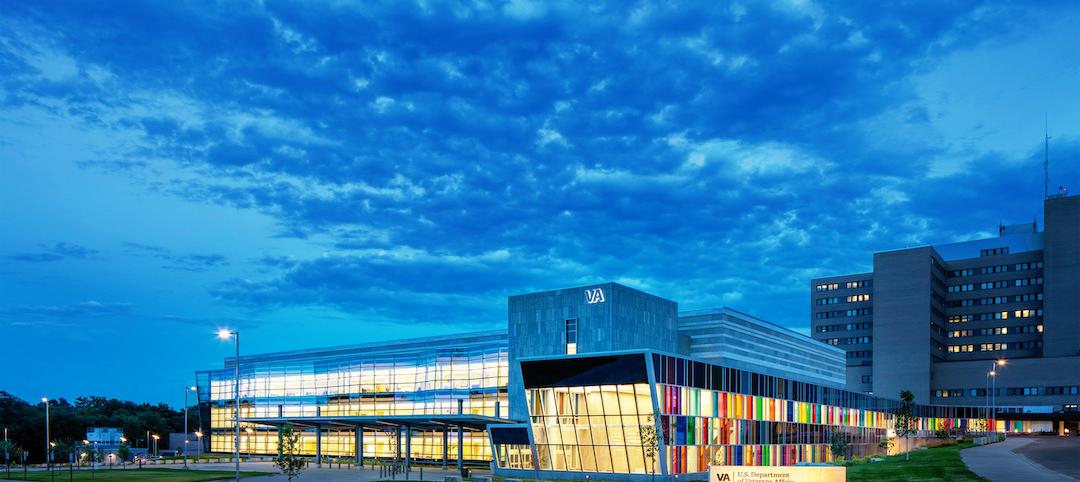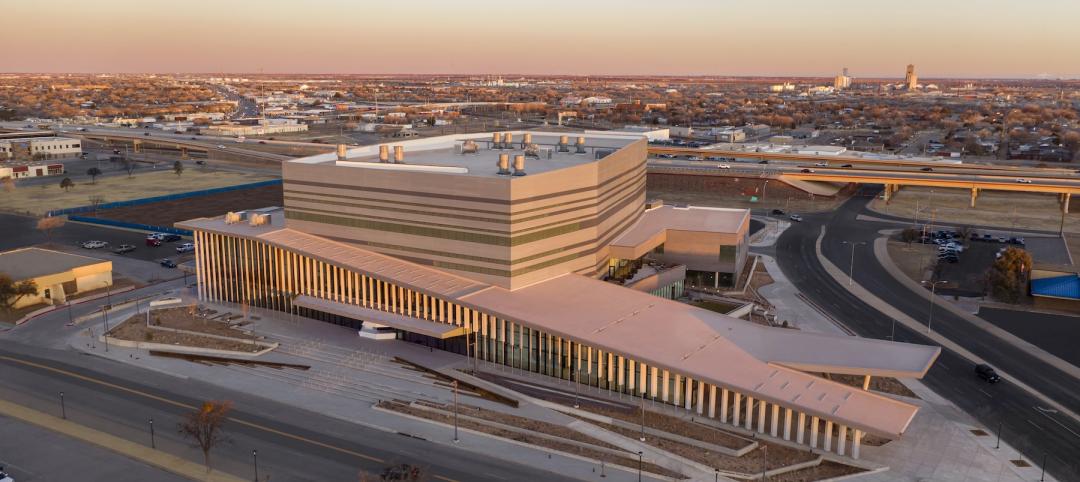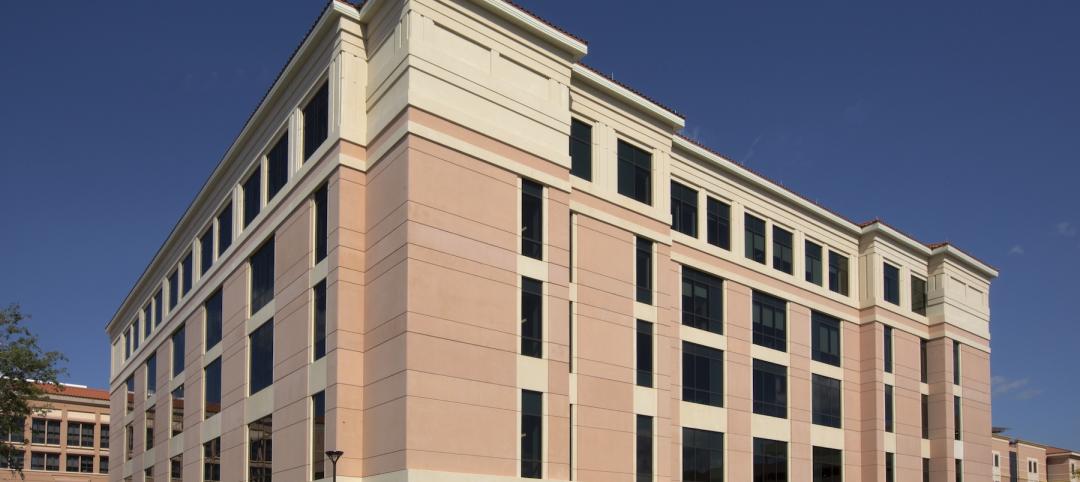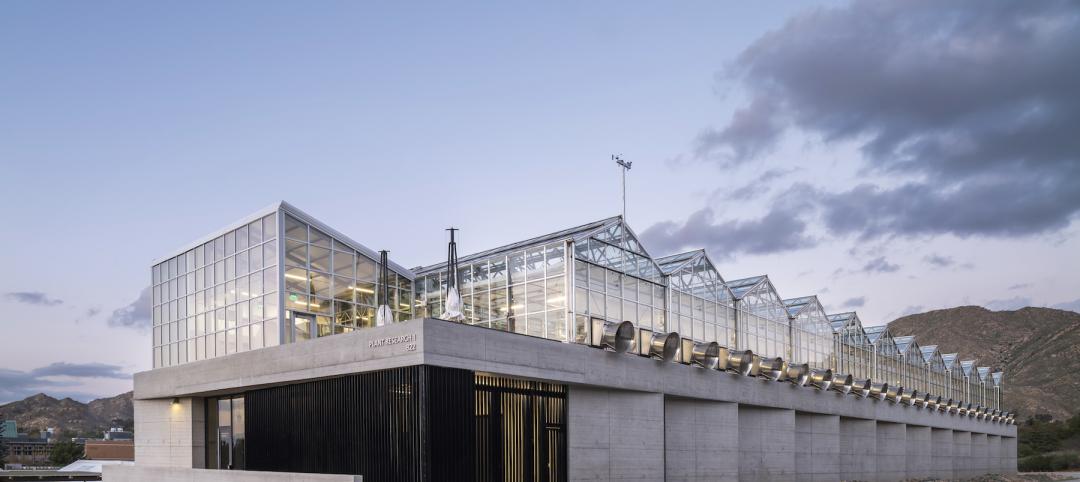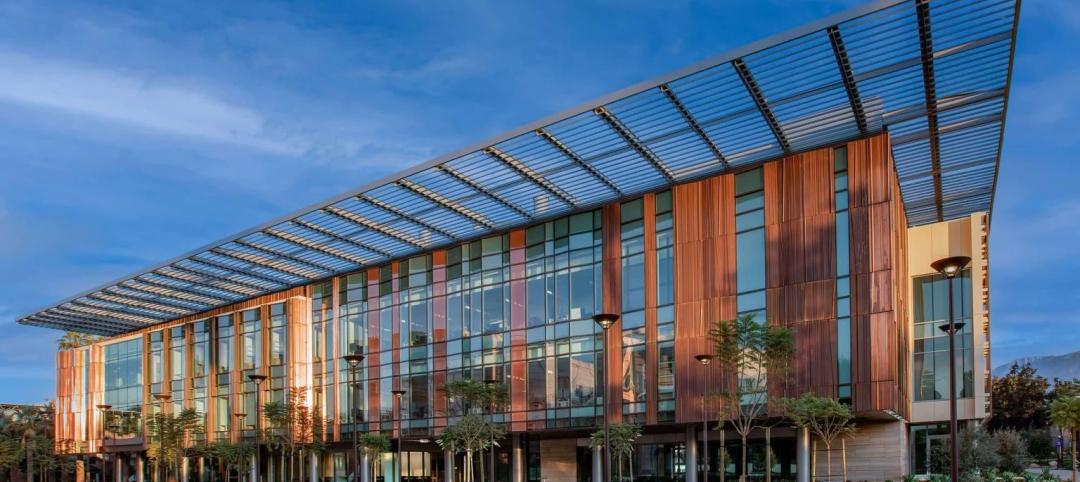PLATINUM AWARD
Denver Water Administration Building, Denver, Colo.
Project Information
Project size: 186,930 sf
Project cost: $57 million (construction)
Construction time: January 2018-January 2020
Delivery method: Design-Bid-Build
Building Team
Submitting firm: Stantec Architecture Inc.
Owner: Denver Water
Architect, Interior design, Landscape architect, Lighting design: Stantec Architecture
Structural engineer: KL&A
Civil engineer: Martin/Martin
MEP engineer: IMEG
General contractor: Mortenson
Conceptual engineering, energy, daylight analysis: Integral Group
LEED facilitation: Ambient Energy
Judges’ comments
“The way the design team pushed the client’s thinking to evolve not just this building but the way the city thinks about water and sustainable design is commendable.”
“Excellent community mission and engagement. The new innovative design features required careful construction coordination and teamwork.”
“The exterior design is attractive in its sleek lines. It’s a prime example of water conservation in an area of the country that is desperate for examples. Combine that with the electrical savings with solar that will reduce forest fires based on electrical failures. The collaboration and willingness to be flexible among unions and agencies are noteworthy. Imagine taking children here to learn about the importance of water and changing [their] view of immediately reusing wastewater.”
ESSAY BY SUBMITTING FIRM:
Denver Water hired a diverse creative team to ensure the design of its new administration complex became a vehicle for change in both the building industry and regulatory landscape of the city and country. The complex is a showcase for innovative use of water reclamation via its on-site wastewater treatment and rainwater capture systems—a first-of-its-kind installation in Colorado. The project’s One Water approach will have broader social impacts, as Denver Water serves as a catalyst to push and redefine water stewardship across the arid west.
Denver Water’s new headquarters also is located strategically to act as a starting point for development within an otherwise industrial zone of the city, creating current and future connections to neighboring residential, arts, and higher education districts.
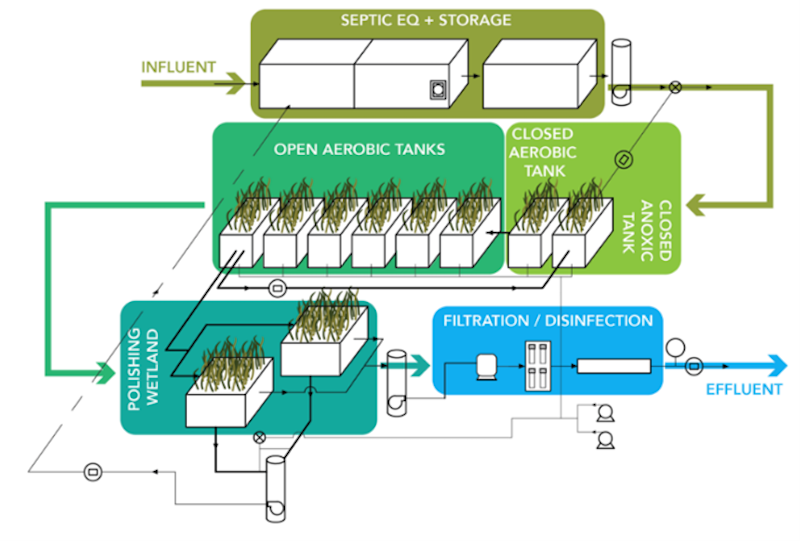
Stantec Architecture
Project Goals and Objectives
The centerpiece of this project is the six-story, 186,000-sf administration building that forms the heart of Denver Water’s revitalized eight-building, 35-acre operations complex and workplace for nearly 700 employees.
This LEED-NC Platinum certified building achieved net-zero energy within its first year of operation. The building’s sustainable features include an on-site wastewater treatment system; on-site solar; a radiant slab powered by the complex’s central utility plant to conserve heat and energy; a high-efficiency triple pane-glazed window system; displacement underfloor ventilation, and biophilic design.
Perhaps the most pioneering aspect of this campus revitalization, and particularly of the admin building, is how the client and design team addressed the goal of a sustainable approach to water use via a “One Water” holistic plan for water efficiency and reuse to promote the right water source for the right use.
The facility’s two most innovative One Water strategies are the rainwater capture for irrigation and on-site wastewater treatment and recycling for toilet flushing and irrigation purposes. The implementation of these systems is a first in Colorado, with Denver Water working to expand state regulations, clearing the way for other new developments to work on its own One Water solutions. In the context of Colorado’s restrictive water rights, going beyond standard practice involved not only innovative engineering, but changing an ecosystem of regulations.
All black water generated in the building is collected in an underground tank west of the building where it receives treatment processing like a conventional wastewater treatment plant. The plants in the lobby planter beds act as wetlands providing additional filtration and nutrient removal. After final disinfection (UV and Chlorine) the purified water is used for flushing toilets, with any excess diverted for irrigation use.
Sustainable design
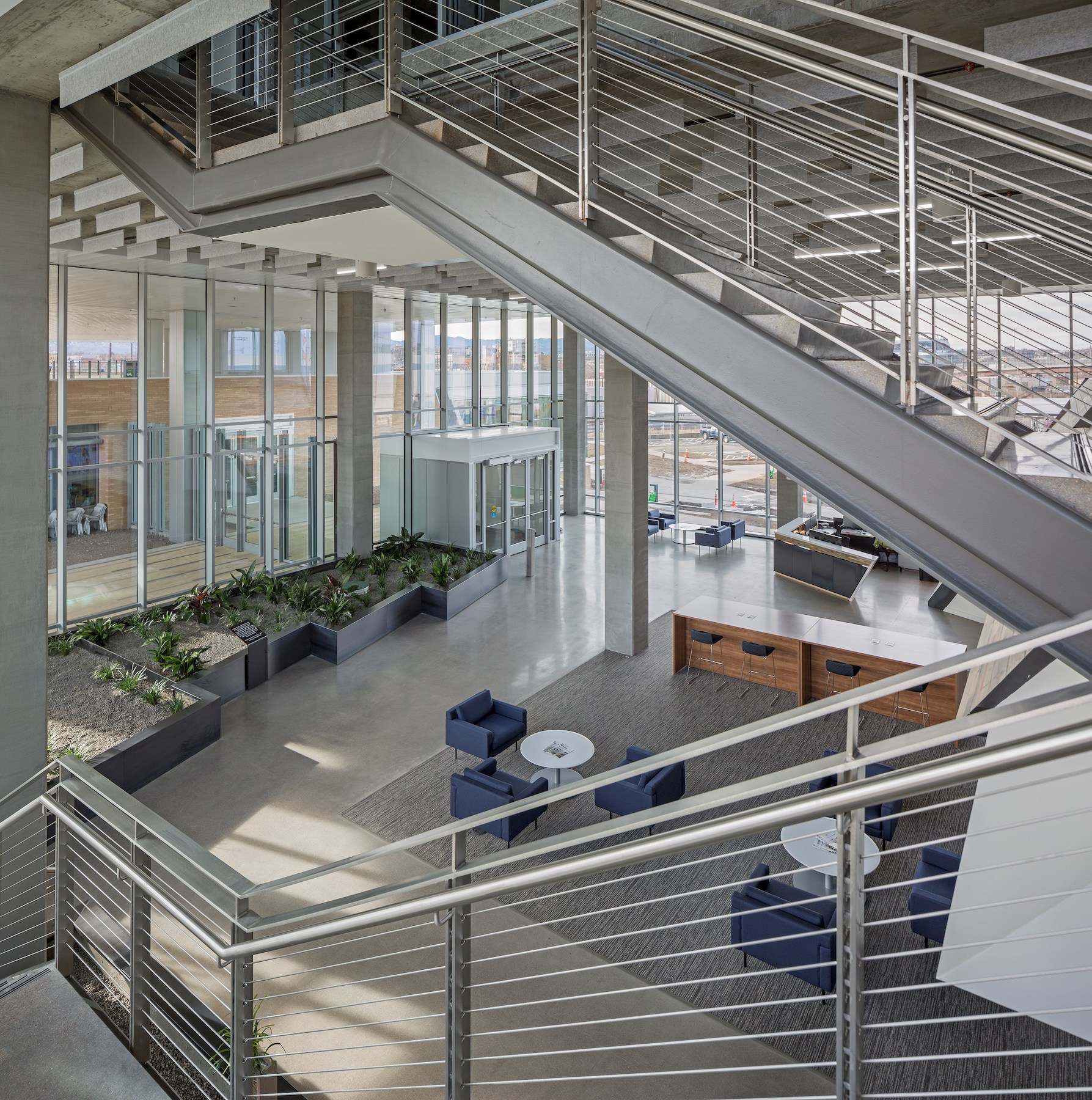
The “One Water” concept minimizes consumption through efficiency whenever possible. The campus uses potable water treated and provided by Denver Water for potable requirements while maximizing reclamation and recycled water for other non-potable uses: The campus was designed to avoid using water for building cooling; no evaporative cooling was used, which is virtually unheard of for a campus this size.
Carbon use reduction was another sustainability goal for the campus. Primary heating is accomplished through electrically driven heat pump compressors, eliminating on-site combustion while also increasing system operational efficiency. Campus Energy Recovery is utilized to achieve operational sustainability goals. A central heat recovery system, with 70,000 gallons of thermal storage, can achieve system coefficient of performance (COP) near 30 as energy is captured and distributed.
To provide central heat pump system an energy source when energy recovery is not available, the Building Team tapped into the immense water volume flowing though Denver Water’s potable water conduit to create a variable temperature heat-sync.
Another key to achieving net zero energy was the installation of 1.3 MW producing photovoltaics on the building’s roof, parking garage, and employee parking carport.
The building also features myriad health and wellness elements: low VOC-emitting materials, a combination radiant slab/underfloor air system, the use of 100 percent outside air with carbon and MERV 13 filtration, and biophilic design principles that resulted in 90 percent of all regularly occupied spaces within the building being daylit.
A centralized waste management system helps support Denver Water’s goal of reducing the amount of solid waste going to the landfill by 25 percent from 2016 to 2020. This waste reduction goal extended to construction of the Operations Complex, which achieved over 80 percent waste diversion through reuse and recycling.
BUILDING TEAM COLLABORATION
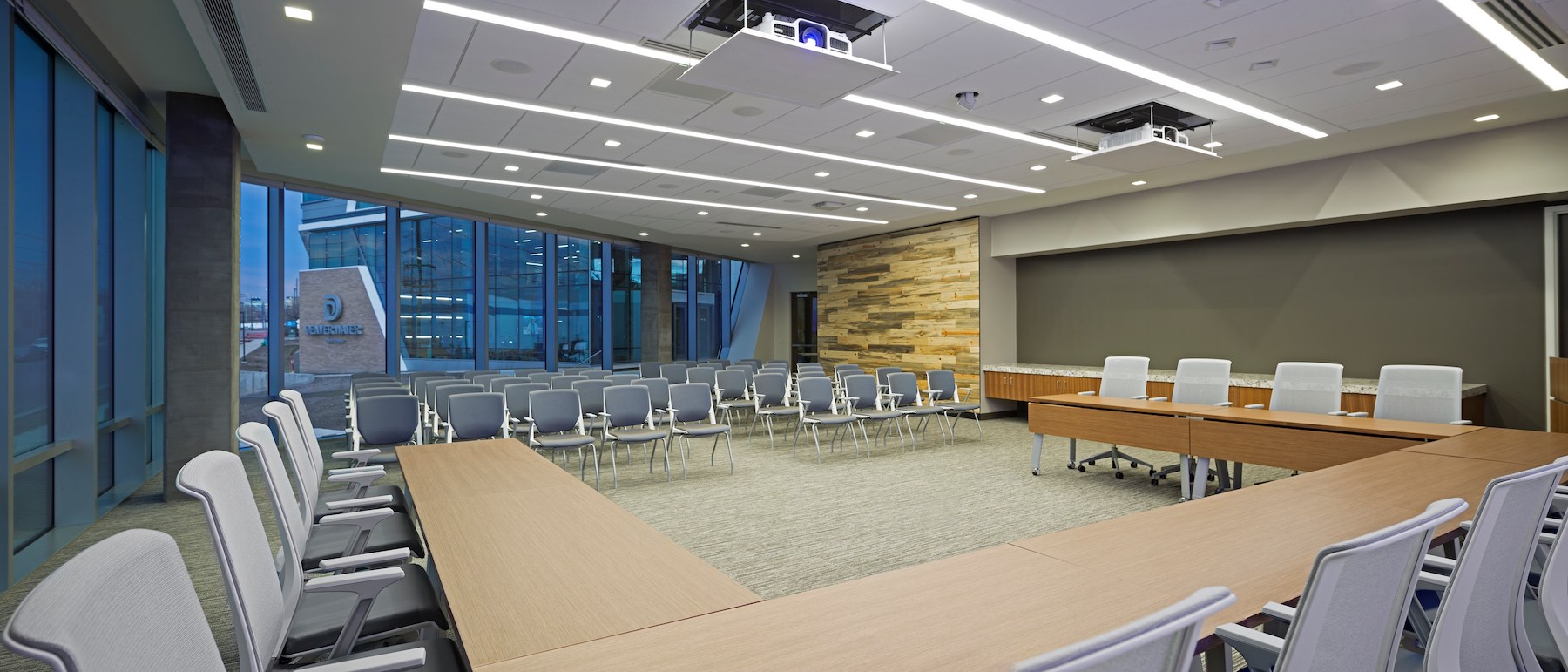
Denver Water posed this challenge to the design team from the project’s onset: “If this facility is to demonstrate fiscal responsibility to our utility rate payers, and if it is to be replicable for the development community to emulate, then it must be designed and constructed within range of a traditional facility’s budget, while still achieving its established water, performance, and wellness goals.”
Incorporating Lean principles and Workplace 2020 right-sizing methods, the architectural and interiors team worked closely with the client to control building size to 256 sf per occupant, while simultaneously accounting for legacy equipment downsizing, employee personal wellness, varied workplace typologies, and future needs over the next generation.
The design and construction teams identified priorities and challenges to be resolved with the owner during a series of visioning sessions, design charettes and planning procedures at all stages of design. This process developed myriad design strategies that balanced first cost limits with long-term performance and payback opportunities. Such collaborative planning resulted in a $200,000 cost savings for the project.
The team facilitated multiple building/campus automation control system meetings with the owner, contractors, equipment vendors, and commission agents to uncover best practices solutions and to established team-member continuity. The MEP team worked alongside the architects, landscape architects, and clients to make sure the water reclamation system is a visual educational opportunity for visitors to build awareness of water conservation strategies.
There was also substantial community involvement, with local, city, and regional water officials brought into early project discussions. Stakeholders were solicited for their feedback on ways to improve the project’s design. (Denver Water intends to continue its community engagement via tours of the facility.)
In addition to full-service design, the integrated team assisted Denver Water in establishing its first full-time Sustainability Manager and Energy Manager positions. It also worked closely with the Denver Water legal team on pushing the One Water requirements through the legislative process, looked extensively at opportunities for public education of the entire process, and worked closely on even the most detailed aspects of the long-term energy management solutions for the administration spaces. These provided invaluable lessons learned on the importance of setting clients up for long term success in operating and managing the building systems in place to achieve any net zero goals, from energy to water to waste.
Read about all Building Team Award Winners
Related Stories
| Aug 29, 2022
Montana becomes first U.S. state to approve 3D printing in construction
Montana is the first U.S. state to give broad regulatory approval for 3D printing in building construction.
Architects | Apr 22, 2022
Top 10 green building projects for 2022
The American Institute of Architects' Committee on the Environment (COTE) has announced its COTE Top Ten Awards for significant achievements in advancing climate action.
Concrete Technology | Apr 19, 2022
SGH’s Applied Science & Research Center achieves ISO 17025 accreditation for concrete testing procedures
Simpson Gumpertz & Heger’s (SGH) Applied Science & Research Center recently received ISO/IEC17025 accreditation from the American Association for Laboratory Accreditation (A2LA) for several concrete testing methods.
2021 Building Team Awards | Jan 14, 2022
First public-private partnership project in Veterans Administration history saves $34 million in costs
LEO A DALY and McCarthy Building Companies head the project team for the Omaha VA Ambulatory Care Center in BD+C’s 2021 Building Team Awards.
Building Team Awards | Dec 8, 2021
A performing arts center celebrates a legendary rocker and his birthplace
Buddy Holly Hall in Texas receives BD+C’s Silver Building Team Award.
Building Team Awards | Dec 7, 2021
A rapid response to a health emergency
Baptist Hospital of Miami’s 233-bed Hope Tower receives BD+C’s Bronze Building Team Award
Building Team Awards | Dec 3, 2021
Putting science on display, thanks to a design-build approach
UC Riverside’s Plant Growth Environments Facility receives BD+C’s Bronze Building Team Award.
Building Team Awards | Dec 2, 2021
An academic ‘precinct’ brings arts and sciences together
Wofford College’s Chandler Center for Environmental Studies receives BD+C’s Silver Building Team Award.
2021 Building Team Awards | Nov 17, 2021
Caltech's new neuroscience building unites scientists, engineers to master the human brain
The Tianqiao and Chrissy Chen Institute for Neuroscience at the California Institute of Technology in Pasadena wins a Gold Award in BD+C's 2021 Building Team Awards.
Giants 400 | Aug 11, 2021
BD+C Awards Programs
Entry information and past winners for Building Design+Construction's two major awards programs: 40 Under 40 and Giants 400


